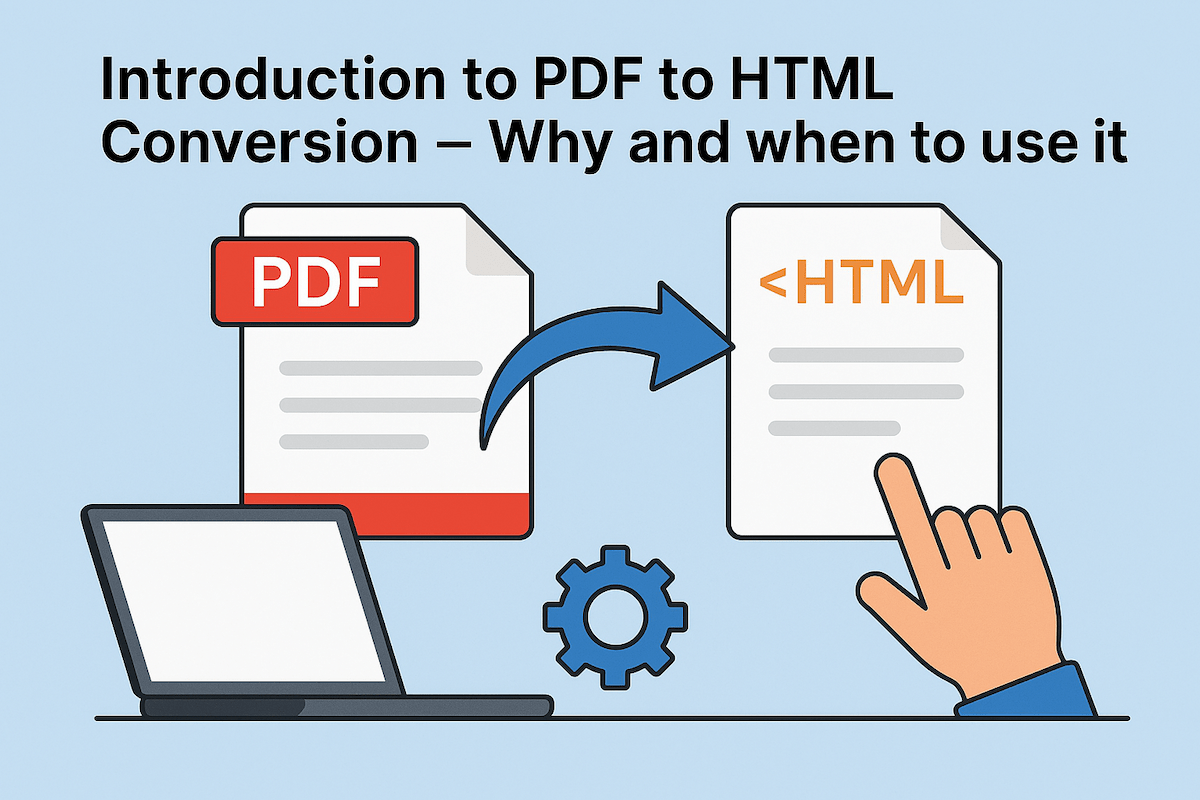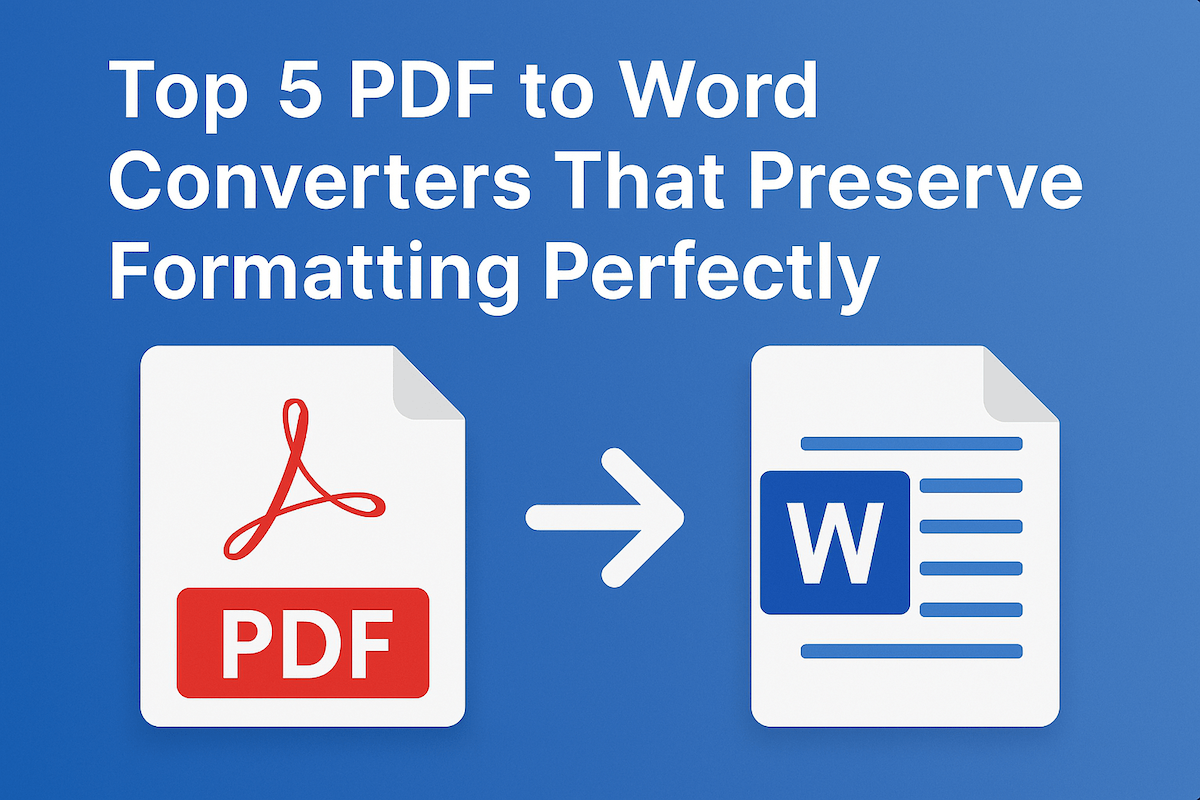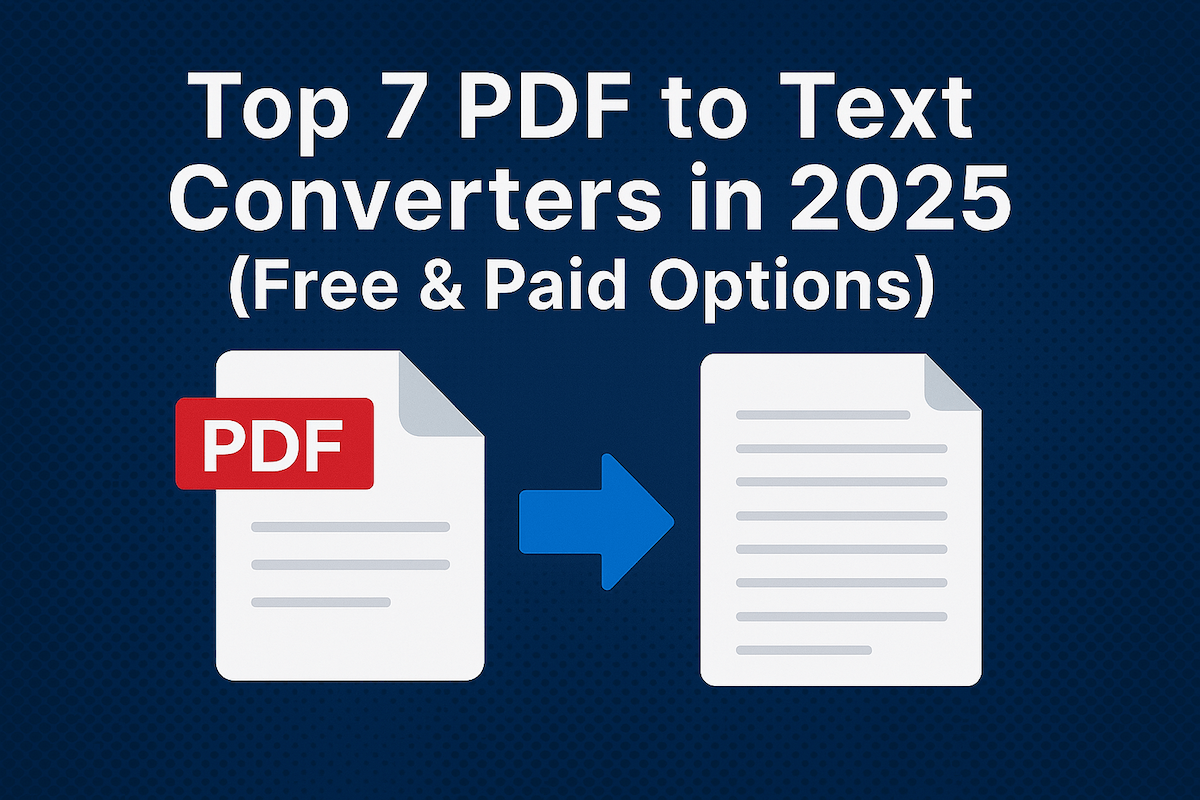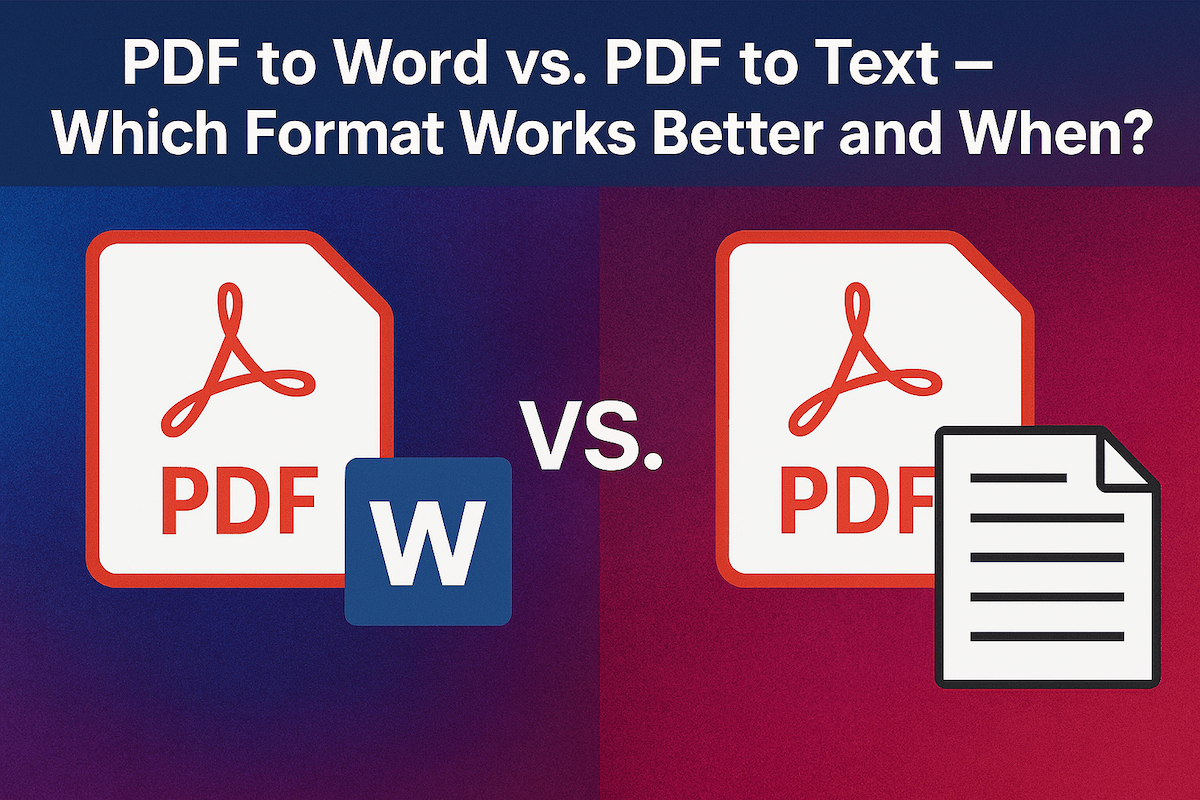Introduction to PDF to HTML Conversion – Why and when to use it
Last updated

Sharing documents online often presents a challenge: PDFs are great for maintaining a fixed layout, but they aren't ideal for the dynamic nature of the web. This is where the ability to convert PDF to HTML becomes a powerful solution. For anyone looking to publish content online, understanding the "why" and "when" of this conversion is crucial for improving accessibility, search engine visibility, and user engagement. This process transforms your static documents into web-native content that is flexible, interactive, and easily discoverable.
Why Convert PDF to HTML? The Key Advantages
Choosing to convert your PDF documents into HTML format offers several significant benefits that can dramatically improve your online presence and content strategy. From making your content accessible to a wider audience to boosting its performance on search engines, the advantages are clear.
Enhance Web Accessibility and User Experience
HTML is inherently responsive, meaning its content automatically adapts to fit any screen size, whether it's a desktop, tablet, or mobile phone. This flexibility ensures a seamless and readable experience for all users, unlike the pinch-and-zoom required for fixed-layout PDFs on small screens. Furthermore, HTML is structured semantically, making it easily navigable for screen readers and other assistive technologies. This commitment to accessibility not only serves users with disabilities but also improves the overall user experience for everyone visiting your site.
Boost SEO and Online Visibility
Search engines like Google can crawl and index HTML content far more effectively than the content locked within a PDF. When you convert PDF to HTML, you make your document's text fully visible and indexable to search engine bots. This allows your content to be ranked for relevant keywords, driving more organic traffic to your website. In contrast, PDFs are often overlooked or indexed less effectively by search engines, limiting your online reach and visibility.
Enable Interactivity and Dynamic Content
One of the most significant limitations of a PDF is its static nature. HTML, on the other hand, opens the door to a world of interactivity. You can embed videos, integrate interactive forms, add clickable call-to-action buttons, and run dynamic scripts directly within your content. This ability to engage users with rich media and interactive elements can lead to higher engagement rates and a more compelling user journey.
Facilitate Content Reusability and Easy Editing
Once your content is in HTML format, it becomes incredibly easy to manage. You can quickly edit, update, or repurpose text and images without needing specialized software. Content can be effortlessly copied and integrated into other web pages, blog posts, or content management systems (CMS), creating a more efficient and streamlined workflow for your team.
When Should You Convert PDF to HTML? Practical Use Cases
Knowing when to perform this conversion is just as important as knowing why. Certain scenarios particularly benefit from transforming a static document into a dynamic web page. Here are a few key use cases:
- Web Publishing and Blog Posts: If you have valuable content like reports, white papers, or informational guides in PDF format, converting them into web pages or blog posts is ideal. This makes the content a native part of your website, integrating seamlessly with its design and navigation while making it fully discoverable by search engines.
- Creating Responsive Online Forms: Instead of forcing users to download, print, fill out, and scan a PDF form, convert it to HTML. This allows you to create interactive, mobile-friendly forms that can be completed and submitted directly on your website, significantly improving completion rates.
- Archiving and Long-Term Digital Preservation: While PDFs are excellent for preserving a specific visual layout, HTML is a more durable and adaptable format for long-term digital preservation. An HTML document is not tied to any proprietary software and can be more easily migrated across different platforms and technologies in the future.
Introducing 500PDF's Convert PDF to HTML Tool
Looking for a reliable and efficient way to convert PDF to HTML? 500PDF offers a powerful online tool designed to simplify this process. Our Convert PDF to HTML tool ensures your documents are web-ready with just a few clicks.
Benefits of using 500PDF's tool:
- Quick and easy to use
- No software installation required
- Secure and private
- Works on any device and browser
- Free to use without account registration
- Special when using a 123doc account to log in:
- Unlimited usage
- Documents from 123doc are automatically synced and ready to convert without re-uploading
In today's web-first world, converting your PDFs to HTML is a critical step toward creating a more accessible, discoverable, and engaging online experience. By prioritizing web-native formats, you enhance everything from user satisfaction and SEO to content interactivity. We encourage you to explore these benefits for yourself and see how a simple conversion can unlock the full potential of your documents. Give the 500PDF tool a try to streamline your workflow and make your content truly web-ready.


